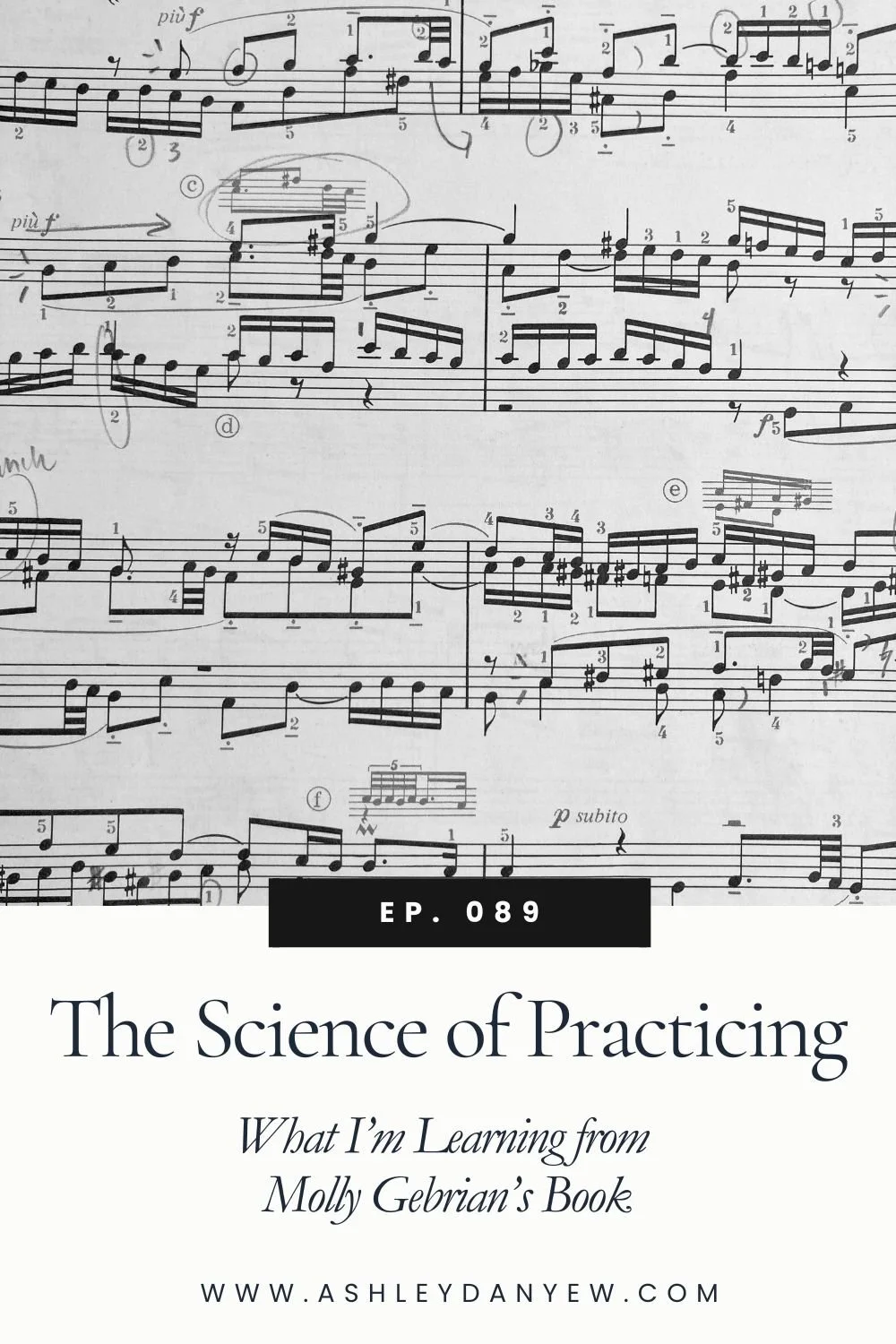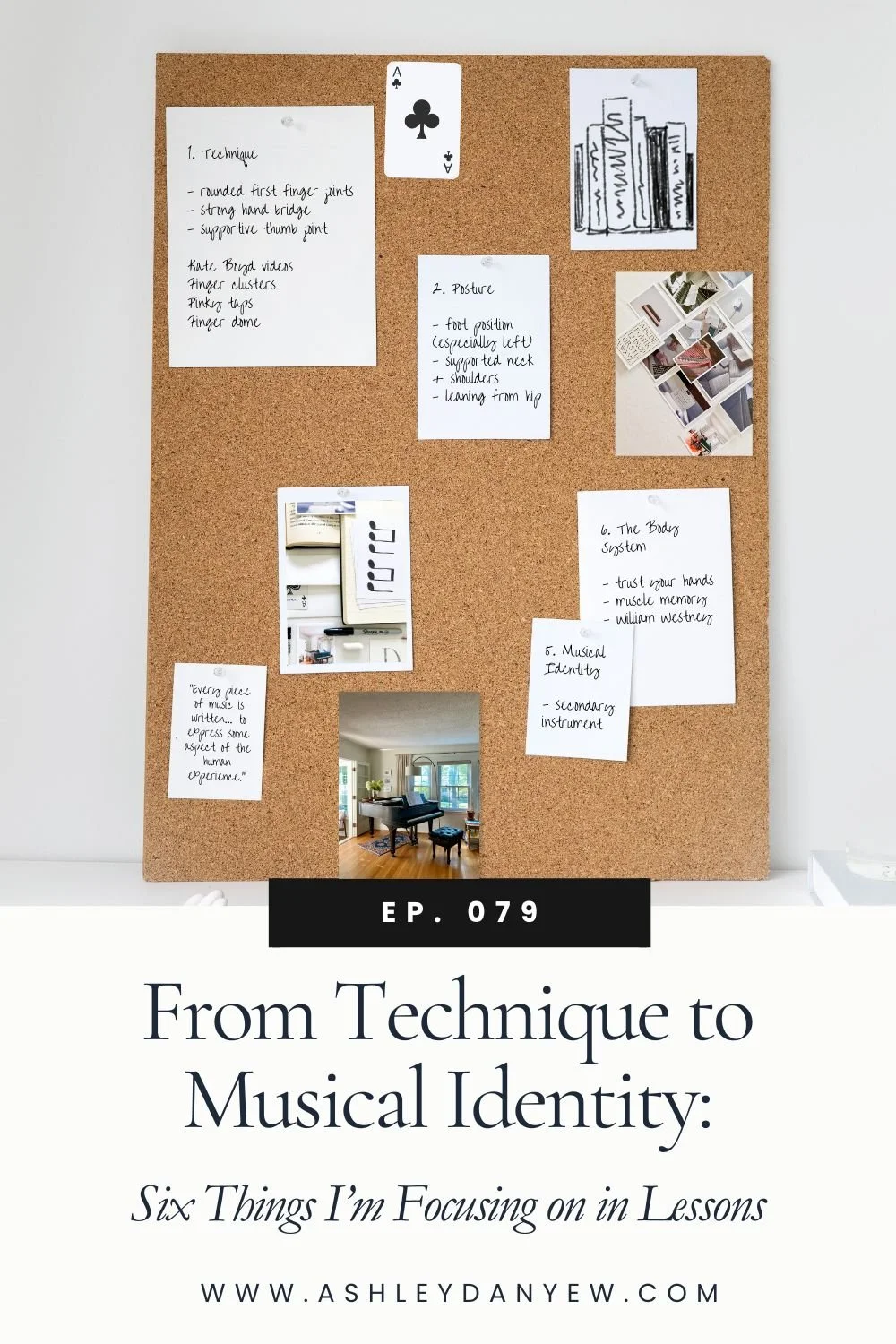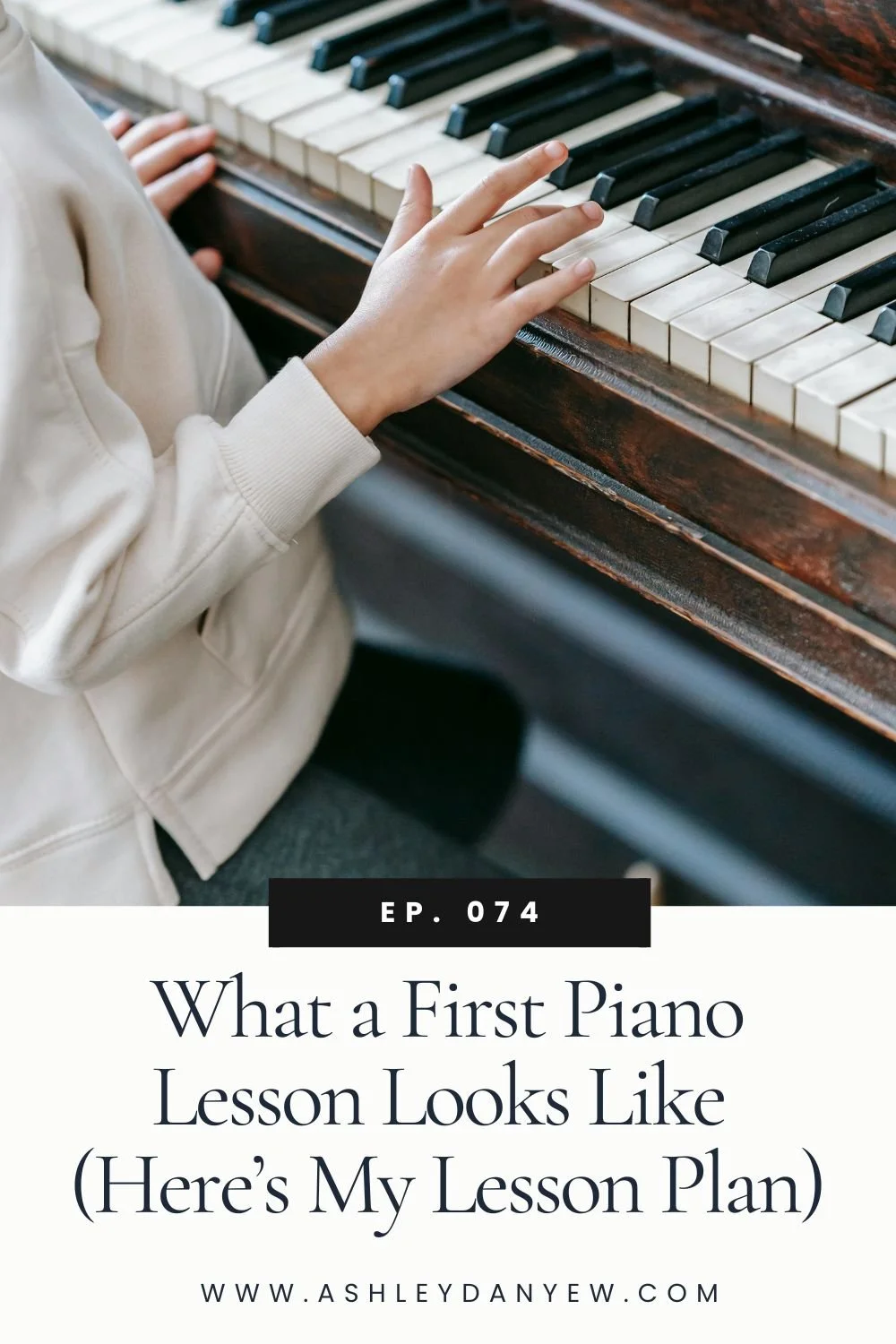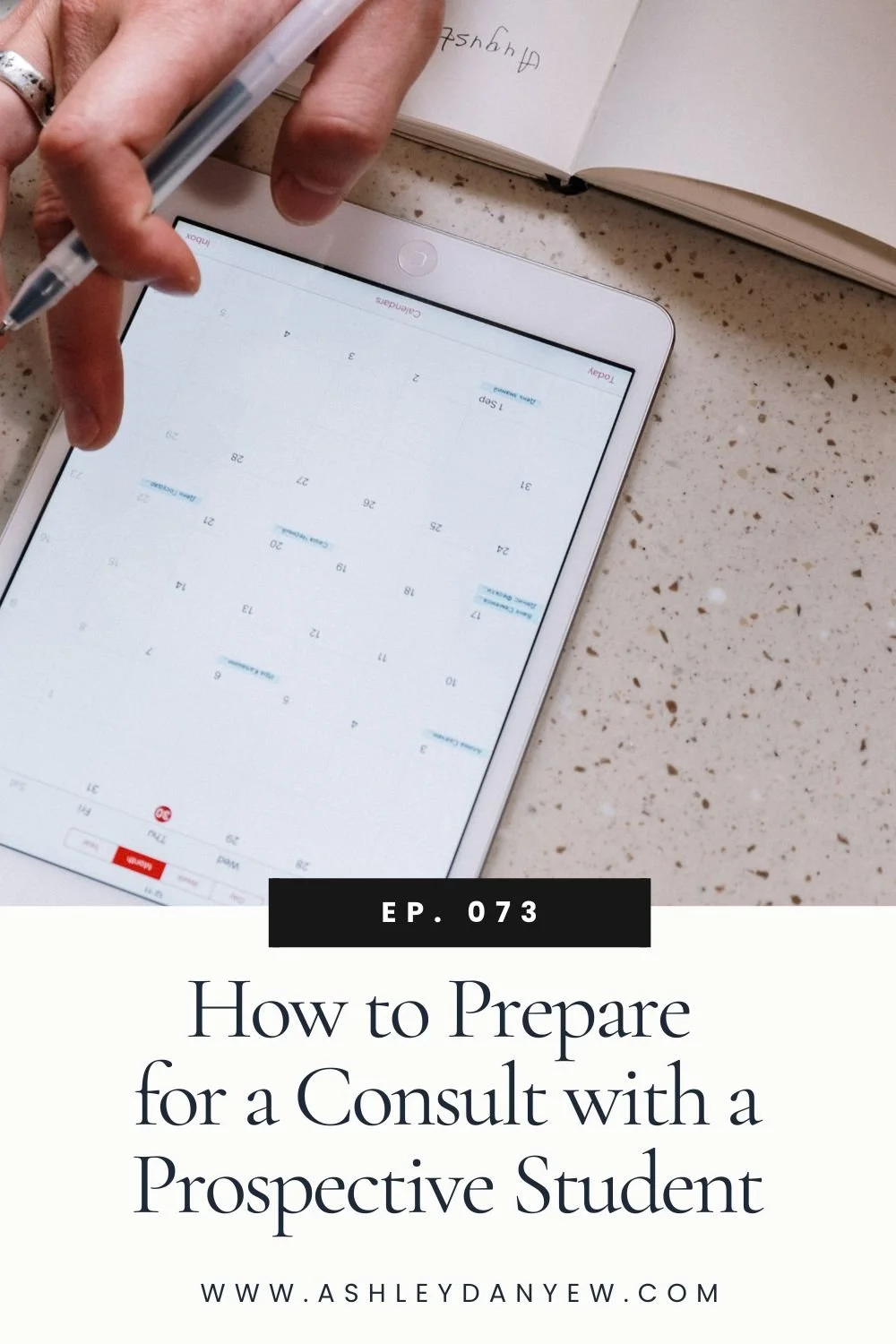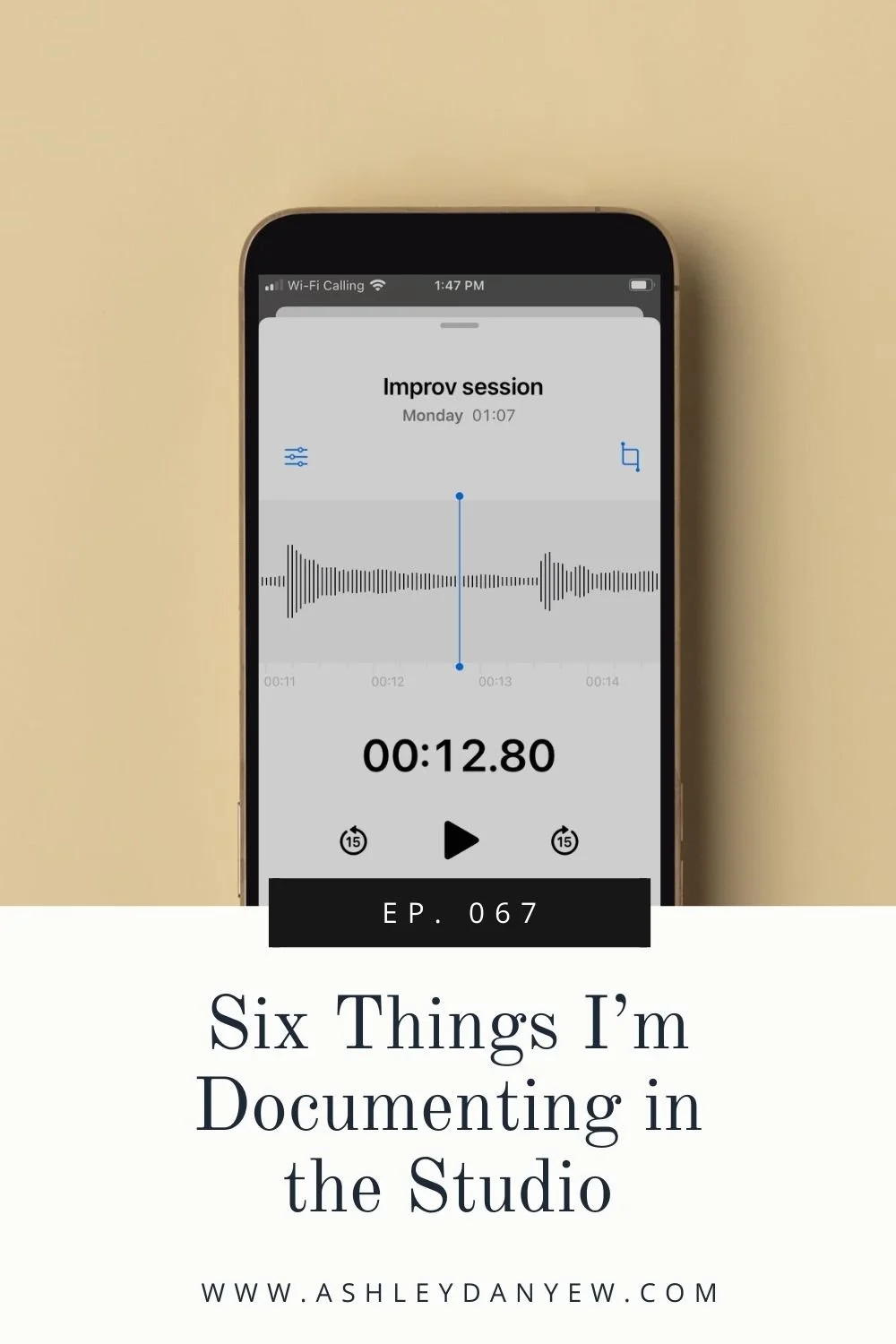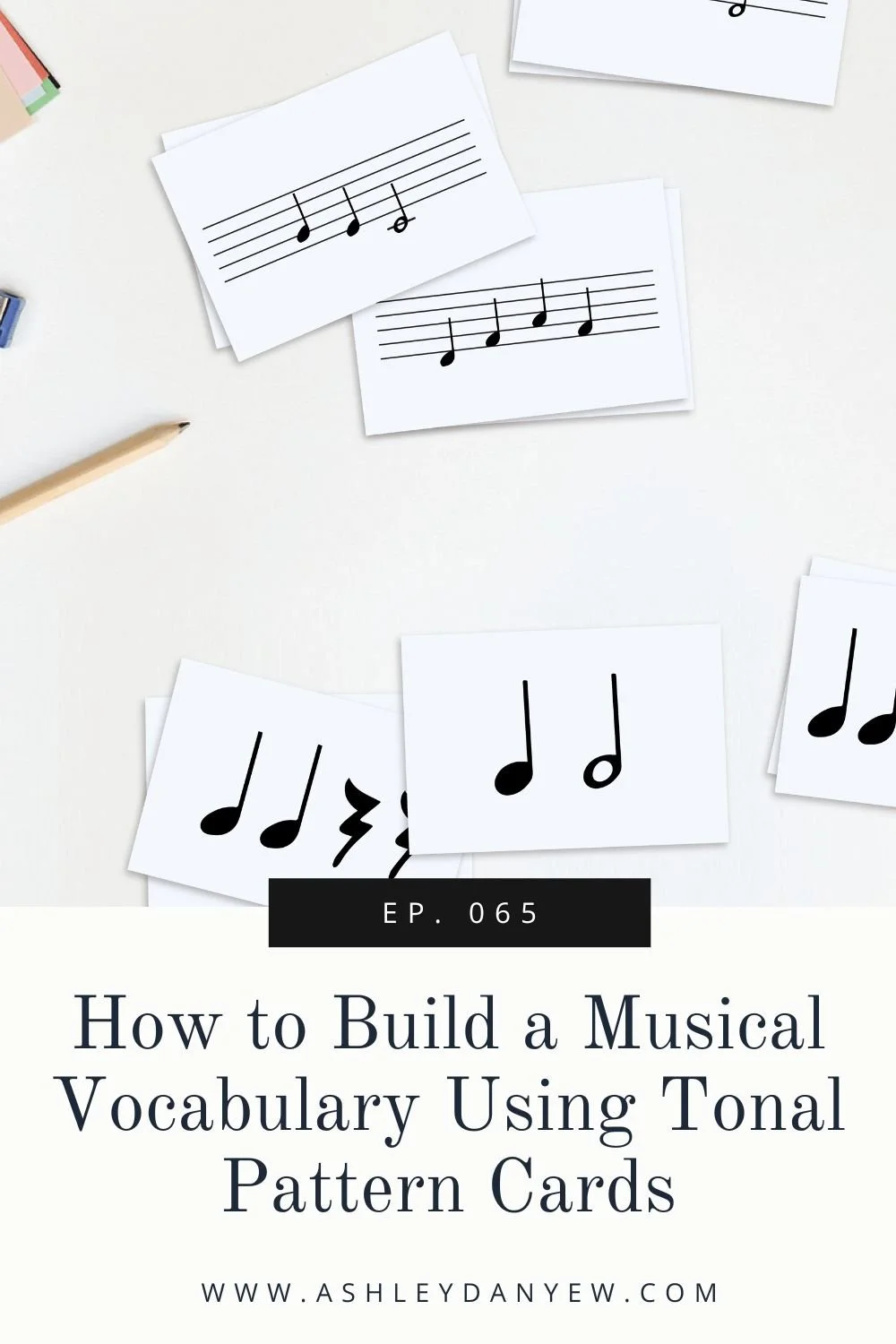Related Resources
*Disclosure: I get commissions for purchases made through some of these links.
The Pros and Cons of Perfectionism, According to Research (Harvard Business Review)
The Gifts of Imperfection (Brené Brown)
Sweet Molly Malone (arr. Eklund)
Music and perfectionism often go hand-in-hand, don't they?
In music school, we're trained to pursue excellence, to strive to be the best. We're taught to set high standards for ourselves, to work hard, and live up to the high standards our teachers have for us.
The thing is, there are two sides to perfectionism.
The value of perfectionism is that it's a commitment to achieving at a high level. But the cost of perfection is a crippling fear of failure, an unwillingness to try new things, negative self-talk, and an unrelenting pursuit of something that may not always be attainable. In fact, it might not even exist.
I mean, have you ever had a perfect performance? What does that look like? Of course, there's technical perfection — the right notes and the right rhythms with the right fingering at the right tempo and the right dynamic level, whatever that might be for you — but is that what we're aiming for, technical proficiency? Or is there something more?
In an article in the Harvard Business Review, authors Brian Swider, Dana Harari, Amy P. Breidenthal, and Laurens Bujold Steed write:
"Perfectionists strive to produce flawless work, and they also have higher levels of motivation and conscientiousness than non-perfectionists. However, they are also more likely to set inflexible and excessively high standards, to evaluate their behavior overly critically, to hold an all-or-nothing mindset about their performance . . . and to believe their self-worth is contingent on performing perfectly. Studies have also found that perfectionists have higher levels of stress, burnout, and anxiety."
Fun, right?
We have these high expectations for ourselves and this deep desire to get it right, to avoid failure, to appear capable and competent and prepared. Sometimes this is a screen to hide a deeper fear and insecurity (like Brené Brown talks about in her book, The Gifts of Imperfection).
I'm speaking for myself here, but maybe you feel this way, too.
Perfectionism can drive us and help us achieve at high levels but it can also cripple us and keep us from moving forward at all. It's a strange paradox but one that I think we need to talk about in the field of music and especially in teaching and learning.
So much of music creation and performance is subjective. There isn't one perfect way to do something. And yet, we still find ourselves chasing the elusive perfect performance.
What expectations do we set for our students, knowingly and unknowingly? What expectations do they have for themselves? Are they healthy and motivating or are they suppressing and hindering their musical development and growth?
Today, I want to share a story about a former student of mine — a 2nd-grader in his second year of lessons. This happened a few years ago but I still think back to our lesson that day and wonder what happened in his life leading up to that moment and what's happened in his life since then.
It was a typical Monday afternoon.
My 2nd-grade student came bounding into the room, full of questions and things to tell me since I’d seen him last.
He sat down on the bench, eager to play an arrangement of “Sweet Molly Malone,” a piece I suggested last week might be good for our end-of-year recital. He put his book on the music rack and flipped noisily to the page, pressing the spine of the book to keep it from closing. He placed his hands on the keys, squinting up at the music to double-check his hand position, and began to play. Slowly, he made his way through, wincing out loud every time he missed a note.
When he got to the end of the piece, I complimented him on his thorough practicing this week and offered a few suggestions: "Listen for smooth, connected playing and feel that steady heartbeat all the way through," I said. He sighed.
Begrudgingly, he placed his hands back on the keys and began again.
Mostly, he played the same way he just had, getting more exasperated with each missed finger, each forgotten half note. Halfway through the piece, he stopped abruptly, crossed his arms, and declared, “This cannot be my recital piece.”
“Why not?” I asked, surprised.
He sat there for a moment, brow knitted, looking like he might cry. “I’ve made too many mistakes,” he said softly. His voice caught in his throat. I was surprised by his response and the tenderness in his voice.
“Who said you made too many mistakes?” I asked. “You can make as many mistakes as you need to - that’s part of learning something new.”
He was not convinced. “I can only make three mistakes,” he said with resolve. I wondered where this idea came from. Was this something his parents said to him at home? Was it something another teacher said one time? Was this his own idea of what was acceptable?
His face softened as I sat down next to the piano. “I couldn't stay for the party after the recital last year because I made too many mistakes,” he said quietly. My heart went out to him at that moment.
Perhaps he misread the situation, I thought. Maybe they had somewhere else to be that day.
Regardless of the reason, I could certainly relate to what he was feeling. We all can, right?
We know what it feels like to aim for perfection and keep falling short; to prove our worth to feel accepted, to be loved.
How often do we feel perfection is what others ask of us? How often do we inadvertently pass this expectation on to our students? How often do we, in a moment of frustration, cross our arms and say, “I can’t do this — I’ve made too many mistakes”?
“How often do we feel perfection in what others ask of us?
How often do we inadvertently pass this expectation on to our students?”
The truth is, we tend to think of failure as the end of the road; but the word mistake actually means “an action or judgment that is misguided; a miscalculation” — like a GPS that’s momentarily lost its signal. It’s a detour, an opportunity to explore an alternate route.
Learning something new always involves some amount of risk and uncertainty: there’s a chance we won’t get it or be able to do it right away, and that’s a good thing. This is how we develop courage and creativity, learning to experiment without expectation and live without fear. This is how we discover and create things we couldn’t have predicted at the start.
The legendary jazz pianist Dave Brubeck once said, "There's a way of playing safe, there's a way of using tricks and there's the way I like to play which is dangerously where you're going to take a chance on making mistakes in order to create something you haven't created before." (source)
“There’s a way of playing safe, there’s a way of using tricks and there’s the way I like to play which is dangerously where you’re going to take a chance on making mistakes in order to create something you haven’t created before”
This is part of the process, and we are better for it.
The truth is, people aren't counting our mistakes, measuring our worth based on our achievements. I believe there are people in our lives who are off-stage, cheering us on and telling us to keep playing. And so, with a spirit of curiosity and tenacity, we try again, we fail again, we create, we discover, we learn.
. . . . .
As I sat on the bench next to my student that day, his arms still crossed, I looked him in the eye and said, “I’m so sorry to hear that. But I want you to know, it's okay to make mistakes. It's not about playing perfectly, it’s about celebrating how far you’ve come and all that you’ve learned this year. Let’s try this piece again, together.” And we did.
Later that spring, he performed "Sweet Molly Malone" for our end-of-year recital.
I'd love to hear from you.
How do you address perfectionism in your teaching? How do you help your students overcome these kinds of challenges in the music-learning process? I'd love to hear your thoughts.
Leave a comment below or send me a DM on Instagram — I'd love to connect with you there.




